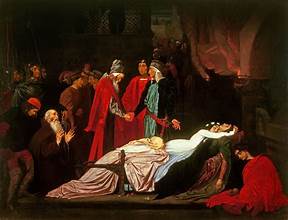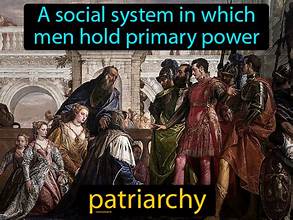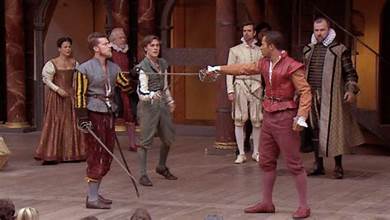How Do the Montague and Capulet Families Contribute to the Catastrophe in Romeo and Juliet?

William Shakespeare’s Romeo and Juliet is a tale of love, tragedy, and fate. Set against the backdrop of a bitter feud between two powerful families—the Montagues and the Capulets—the story explores how this longstanding animosity leads to the untimely deaths of the young lovers. How do the Montague and Capulet families contribute to the catastrophe in Romeo and Juliet? In examining their roles, we see how their actions, decisions, and attitudes directly and indirectly contribute to the fatal consequences that unfold in the play.
Table of Contents
The Montague-Capulet Feud: A Legacy of Hatred
One of the most prominent themes in Romeo and Juliet is the destructive power of familial conflict. The Montagues and Capulets are entrenched in a feud that has lasted for years, although the reasons for the feud are never fully explained in the play. This lack of clarity only heightens the sense of futility in the violence, suggesting that the conflict is senseless and rooted in tradition rather than any clear cause. The mere existence of this feud sets the stage for the tragic events that follow.
The families’ hatred of each other is not just a backdrop to the story, but an active and ongoing force that drives much of the plot. How do the Montague and Capulet families contribute to the catastrophe in Romeo and Juliet? The constant bickering and fighting between the two families create an environment where violence is normalized, and peaceful solutions are never considered. As the Montagues and Capulets clash, they set up a world in which their children, Romeo and Juliet, have little chance for happiness or survival.
The Role of Social Expectations
In Verona, the conflict between the Montagues and Capulets is not only personal but also social. Both families hold significant power and influence in their community. They are noble houses, and their honor and reputation are of utmost importance. For each family, any slight against their name is an affront that must be avenged. This obsession with honor plays a major role in the events of the play, particularly in the interactions between the families.
The social expectations surrounding honor and reputation pressure members of the Montague and Capulet families into upholding the feud. How do the Montague and Capulet families contribute to the catastrophe in Romeo and Juliet? The adherence to these traditional values forces Romeo and Juliet to hide their love, as their relationship goes against the societal expectations set by their families. Their love, pure and genuine, becomes a symbol of defiance against the rigid codes of conduct that govern their world. Their desire to be together, though driven by love, is ultimately doomed because the families’ need for honor and superiority overrides the possibility of reconciliation or peace.
The Influence of Patriarchal Authority

At the heart of both the Montague and Capulet families are strong patriarchal figures—Lord Montague and Lord Capulet. These fathers wield considerable power over their households and are key players in the tragic outcome of the story. How do the Montague and Capulet families contribute to the catastroph in Romeo and Juliet? The actions and decisions of these patriarchs contribute to the escalation of violence and the eventual deaths of their children.
For example, Lord Capulet’s insistence on marrying Juliet to Paris is a direct result of his desire to control her life and secure his family’s future. Juliet’s wishes are ignored, and her personal feelings are dismissed in favor of the social and financial benefits that such a marriage would bring. This pressure to conform to the will of her father drives Juliet into making desperate decisions, such as faking her own death. Similarly, Lord Montague’s influence over Romeo is a driving force behind his actions throughout the play. Though Romeo is more impulsive and emotionally driven, the pressure from his family to act in ways that reflect the honor of the Montague name shapes his decisions in crucial moments.
Both fathers contribute to the fatalism of the play, as their inability to understand or empathize with their children’s desires and emotions limits the options available to Romeo and Juliet. In this patriarchal system, the voices of the young lovers are silenced, and they are ultimately forced to make decisions that lead to their deaths.
Tybalt’s Aggression and the Role of Violence
Another key aspect of the Montague and Capulet families’ contribution to the catastroph in Romeo and Juliet is the figure of Tybalt, Juliet’s cousin and a Capulet loyalist. Tybalt’s hatred for the Montagues is evident from his first appearance, and his actions significantly escalate the tension between the two families. His violent outbursts serve as a catalyst for much of the bloodshed that follows.
Tybalt’s inability to tolerate any insult to his family name leads him to challenge Romeo to a duel, despite Romeo’s attempts to avoid conflict. How do the Montague and Capulet families contribute to the catastrophe in Romeo and Juliet? Tybalt’s aggression and desire to uphold his family’s honor result in the death of Mercutio, Romeo’s close friend. This moment marks a turning point in the play, as Romeo’s grief and anger over Mercutio’s death lead him to kill Tybalt in revenge. Romeo’s act of violence forces him into exile, which further separates him from Juliet and makes their love even more forbidden and impossible.
Tybalt’s role in the tragedy is a direct consequence of the violent culture fostered by the feud between the Montagues and Capulets. His actions not only contribute to the deaths of Mercutio and Tybalt but also pave the way for the final catastrophe.
The Role of Friar Laurence and the Miscommunication

While much of the tragedy can be attributed to the actions of the Montague and Capulet families, other characters also contribute to the disaster. One such character is Friar Laurence, whose good intentions ultimately fail to prevent the catastrophic outcome. How do the Montague and Capulet families contribute to the catastrophe in Romeo and Juliet? The Friar’s plan to help Romeo and Juliet escape their families’ constraints is an attempt to resolve the conflict between the families, but his failure to communicate properly with Romeo sets the stage for the tragic ending. Romeo never receives the letter detailing Juliet’s plan to feign her death, and upon hearing of Juliet’s apparent death, he hastily returns to Verona to kill himself beside her.
This tragic misunderstanding is a direct consequence of the families’ conflict. If the Montagues and Capulets had not been so entrenched in their feud, Romeo and Juliet might have been able to openly express their love, leading to a different and less tragic outcome. Instead, the lack of communication and the secrecy required by their families’ animosity ensure that any attempts at resolution are doomed to fail.
The Catalyst of Fate: Romeo and Juliet’s Tragic Choices
Despite the influence of their families, Romeo and Juliet also make choices that contribute to the tragedy. Their decision to marry in secret, while a bold act of defiance, ultimately isolates them from the support they need. How do the Montague and Capulet families contribute to the catastrophe in Romeo and Juliet? Their families’ feud forces Romeo and Juliet to act in secret and without guidance, leaving them vulnerable to miscommunication, misunderstanding, and misfortune. Their youth and inexperience only exacerbate the consequences of their choices.
Romeo and Juliet’s love is genuine and transcendent, but their decision to marry in the face of their families’ hatred and violence sets off a chain of events that leads to death and despair. While the families’ animosity plays a crucial role in the unfolding catastrophe, it is also the lovers’ inability to escape their families’ shadow that seals their fate.
Also read Plessner Coaching in Lutherstraße 2 34327 Körle: Unlock Your Personal Growth Potential
Conclusion: A Legacy of Destruction
The Montague and Capulet families are central to the tragic narrative of Romeo and Juliet. Their feud creates a world where love is forbidden, and violence is inevitable. How do the Montague and Capulet families contribute to the catastrophe in Romeo and Juliet? Through their ongoing hostility, their obsessive desire for honor, and their failure to understand the needs and desires of their children, both families set in motion the chain of events that leads to the deaths of Romeo and Juliet. Tybalt’s aggression, the influence of patriarchal authority, and the failure of communication all stem from the families’ inability to reconcile their differences. Ultimately, the play demonstrates how entrenched hatred and blind loyalty to family can destroy not only individuals but entire generations.
In Romeo and Juliet, the Montague and Capulet families are not just the backdrop of the story—they are the catalysts for the tragedy. Their actions, attitudes, and choices leave little room for resolution or peace, driving the young lovers into a corner where their only option is death. Through the destruction of these families, Shakespeare’s play serves as a powerful commentary on the consequences of conflict, loyalty, and pride. The tragedy of Romeo and Juliet is not simply the result of fate, but also of the harmful forces created by the Montague and Capulet families’ feud.




